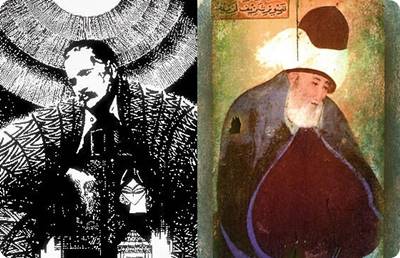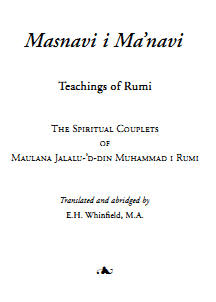How is Rumi is regarded by Muslims from Iran, Turkey, Pakistan, India, and the West
How is Rumi is regarded by Muslims from Iran, Turkey, Pakistan, India, and the West
Jalaluddin Rumi, also known as Mawlānā, is one of the most celebrated poets and mystics in Islamic history. His influence transcends borders, religious sects, and even centuries. While his mystical poetry has found resonance in the hearts of people around the world, it’s essential to understand how he is regarded by Muslims, particularly in countries like Iran, Turkey, Pakistan, India, and even the West.
1. Rumi in Iran: A Revered Persian Poet and Sufi Saint
Rumi was born in the region of Khorasan, present-day Afghanistan but closely tied to Persian culture. For Iranians, Rumi is primarily seen as a Persian poet and a Sufi saint, a spiritual guide whose teachings align deeply with the esoteric aspects of Islam. His work, particularly the Masnavi, is often referred to as the “Quran in Persian,” highlighting his spiritual significance. Iranian scholars, particularly within the Shia tradition, admire his focus on divine love and the unity of existence, seeing his work as an expression of Islamic spirituality in Persian literature.

2. Rumi in Turkey: A Central Figure in Sufism
Rumi spent most of his life in the city of Konya, Turkey, where his spiritual order, the Mevlevi or “whirling dervishes,” emerged. In Turkey, he is regarded as a central figure of Sufism. His poetry and teachings are celebrated annually during the Seb-i Arus festival, marking his passing. The Mevlevi Order, with its iconic whirling dervish dance, serves as a living tradition that continues to spread his message of love and tolerance. Turkish Muslims often see Rumi as a bridge between Islamic orthodoxy and mysticism, embodying the inner essence of Islam, focusing on divine love and human connection with the divine.
3. Rumi in Pakistan: A Guide for Spiritual and Ethical Living
In Pakistan, Rumi’s poetry has long been a source of inspiration for intellectuals, poets, and spiritual seekers. Influential thinkers like Muhammad Iqbal, who is considered the ideological father of Pakistan, viewed Rumi as a mentor and spiritual guide. Iqbal’s philosophy of self-empowerment and spiritual awakening was heavily inspired by Rumi’s teachings. Rumi’s emphasis on love, self-awareness, and the pursuit of truth resonates strongly with Pakistani Muslims, who see him as a guide for spiritual and ethical living within the framework of Islam.

Allama Iqbal and Rumi – Peer Rumi and Mureed Hindi
4. Rumi in India: A Connection to Sufism and the Bhakti Movement
India has a rich history of Sufism, and Rumi’s works are cherished by many Indian Muslims as well as Hindus who appreciate his universal message of love and unity. His ideas also echo in India’s Bhakti movement, which promotes personal devotion to God, transcending the bounds of organized religion. Indian Muslims regard Rumi as a timeless voice that speaks to the core of Islamic spirituality. His teachings are often integrated into Sufi gatherings and are considered a symbol of harmony in India’s diverse religious landscape.
5. Rumi in the West: A Universal Mystic Beyond Islam
In the West, Rumi is often regarded as a universal mystic, whose poetry speaks to themes of love, unity, and spiritual transformation. Western audiences tend to focus less on his Islamic roots and more on his humanistic and spiritual messages, which can resonate with people from various religious and philosophical backgrounds. Popular translations by poets like Coleman Barks have made Rumi one of the best-selling poets in the United States. However, this often comes at the cost of overlooking the Islamic context of his work, which is deeply rooted in Sufism and the Quran.

Masnavi Maulana Rumi translated by Whinfield
Across the Muslim world, Rumi is largely regarded as a towering figure in Islamic mysticism, revered for his spiritual insights and poetic genius. While he is celebrated differently depending on the cultural and religious context—whether as a Persian poet in Iran, a Sufi saint in Turkey, or an ethical guide in Pakistan and India—his message remains one of love, unity, and the pursuit of divine truth.
In the West, while his poetry has gained immense popularity, it is often detached from his Islamic and Sufi origins. Nonetheless, Rumi’s teachings continue to bridge gaps between cultures, religions, and spiritual traditions, making him a universal symbol of love and wisdom.
Keywords: Rumi and Islam, Sufism, Rumi in Iran, Rumi in Turkey, Rumi in Pakistan, Rumi in India, Rumi in the West, Islamic mysticism, Rumi’s poetry, Mevlevi Order, Rumi’s influence on Iqbal.



